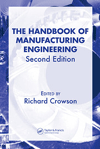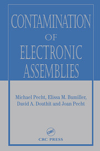AUSTIN, TX—John Goodenough, Ph.D., a professor at the University of Texas who pioneered lithium-ion battery technology, has passed away. He was 100 years old. Goodenough received the 2019 Nobel Prize in chemistry for his R&D efforts.
Goodenough identified and developed the critical cathode materials that provide the high-energy density needed to power electric vehicles, as well as portable electronic devices such as mobile phones, laptops and tablets. In 1979, while working at the University of Oxford, he and his research team found that by using lithium cobalt oxide as the cathode of a lithium-ion rechargeable battery, it would be possible to achieve a high density of stored energy with an anode other than metallic lithium.
This discovery led to the development of carbon-based materials that allow for the use of stable and manageable negative electrodes in lithium-ion batteries. Goodenough joined the faculty of the Cockrell School of Engineering at the University of Texas in 1986. Several years later, Sony Corp. commercialized the lithium-ion battery for consumer electronics applications.
Throughout his tenure at UT, Goodenough continued to focus on battery materials, and address fundamental solid-state science and engineering problems, to create the next generation of rechargeable batteries.
After receiving degrees from Yale University and the University of Chicago, Goodenough began his career at the Massachusetts Institute of Technology’s Lincoln Laboratory in 1952, where he worked for 24 years and laid the groundwork for the development of random-access memory (RAM) for digital computers.
Goodenough also was a pioneer in the field of orbital physics and one of the founders of the modern theory of magnetism, which became known as the Goodenough-Kanamori Rules. These rules provide a practical guidance in the research of magnetic materials and have a huge impact in developing devices in telecommunications.
“Not only was John a tremendous researcher, he was also a beloved and highly regarded teacher,” says Sharon Wood, executive vice president and provost of the University of Texas. “He took great pride in being a mentor to many graduate students and faculty members who benefitted from his wisdom and encouragement.”
“John’s legacy as a brilliant scientist is immeasurable—his discoveries improved the lives of billions of people around the world,” adds Jay Hartzell, president of the University of Texas. “He was a leader at the cutting edge of scientific research throughout the many decades of his career, and he never ceased searching for innovative energy-storage solutions.”



.jpg?height=200&t=1666140257&width=200)


